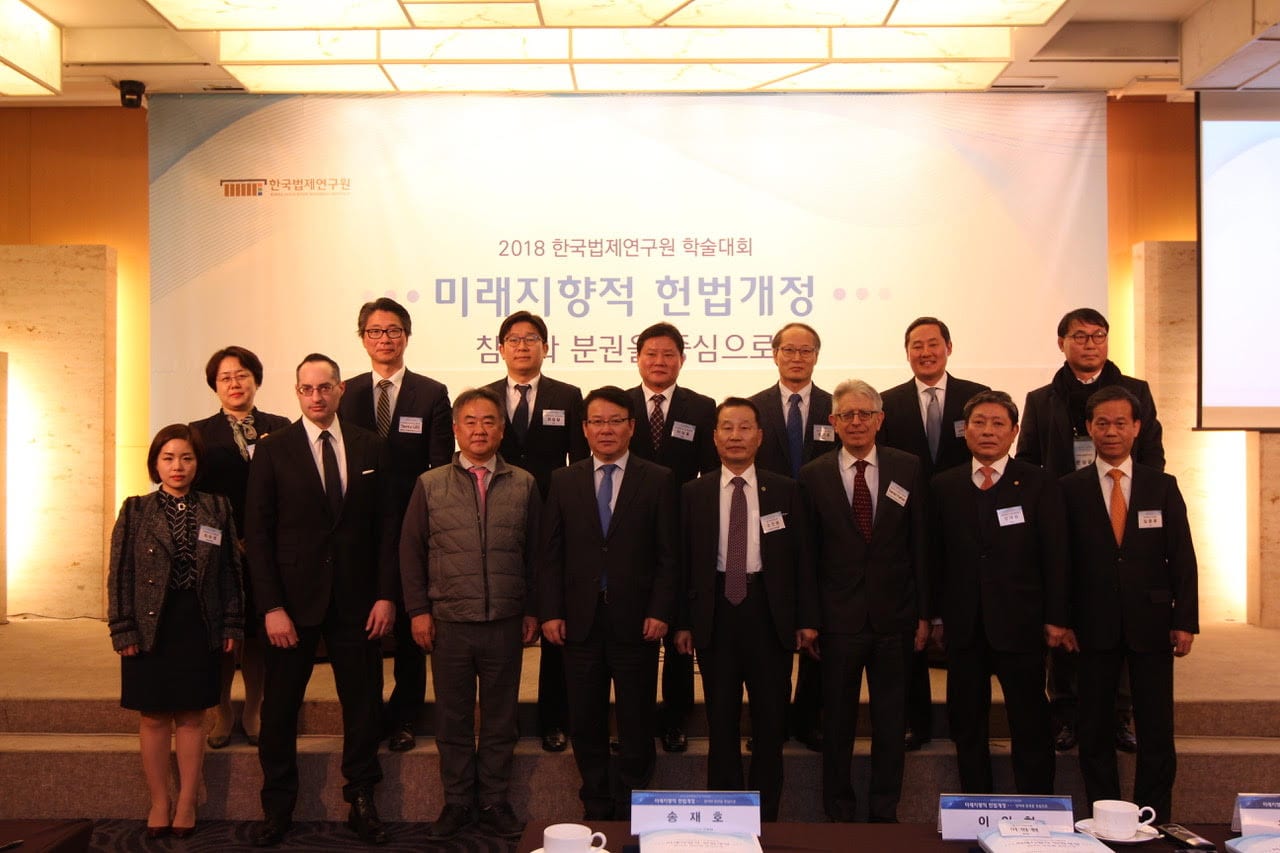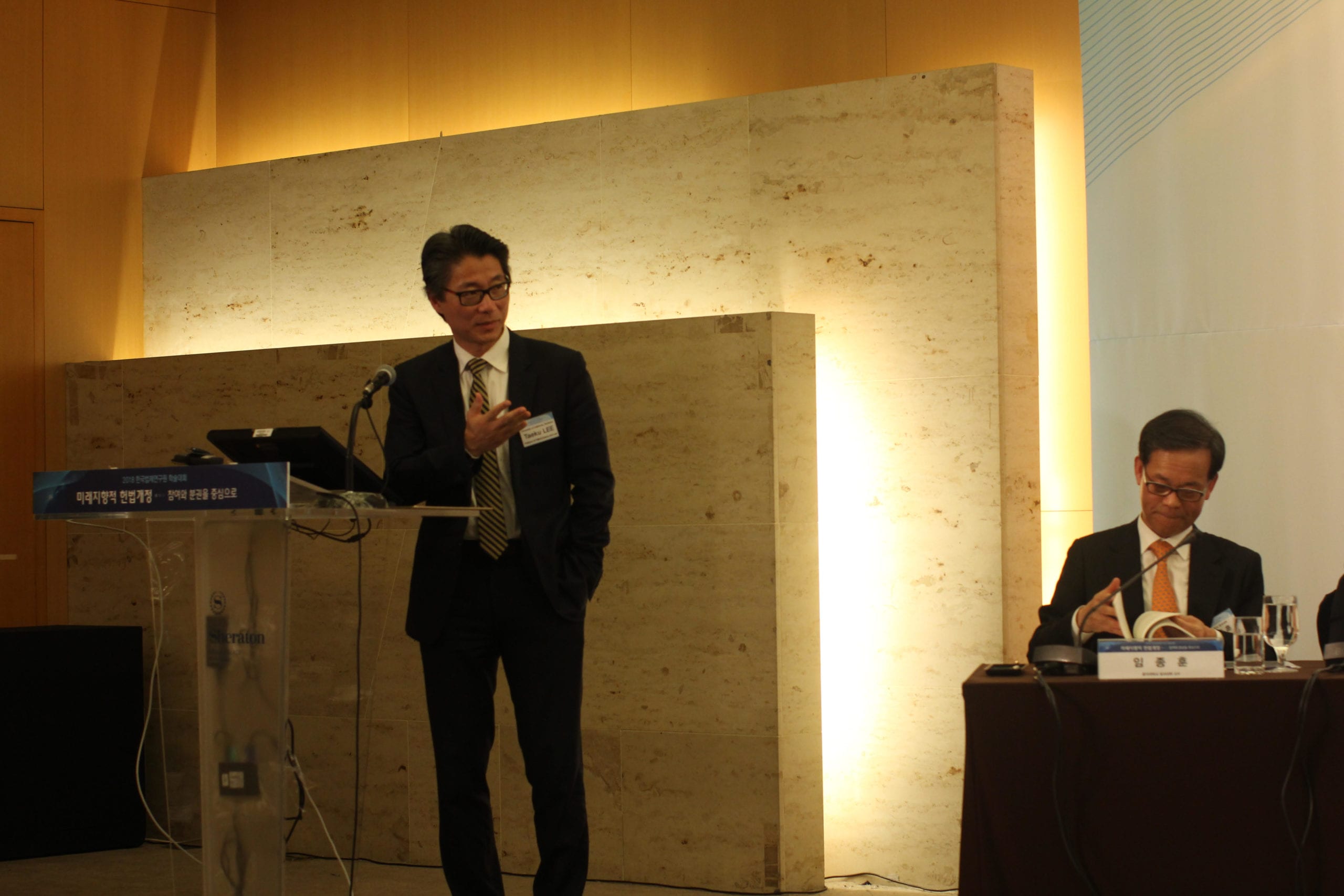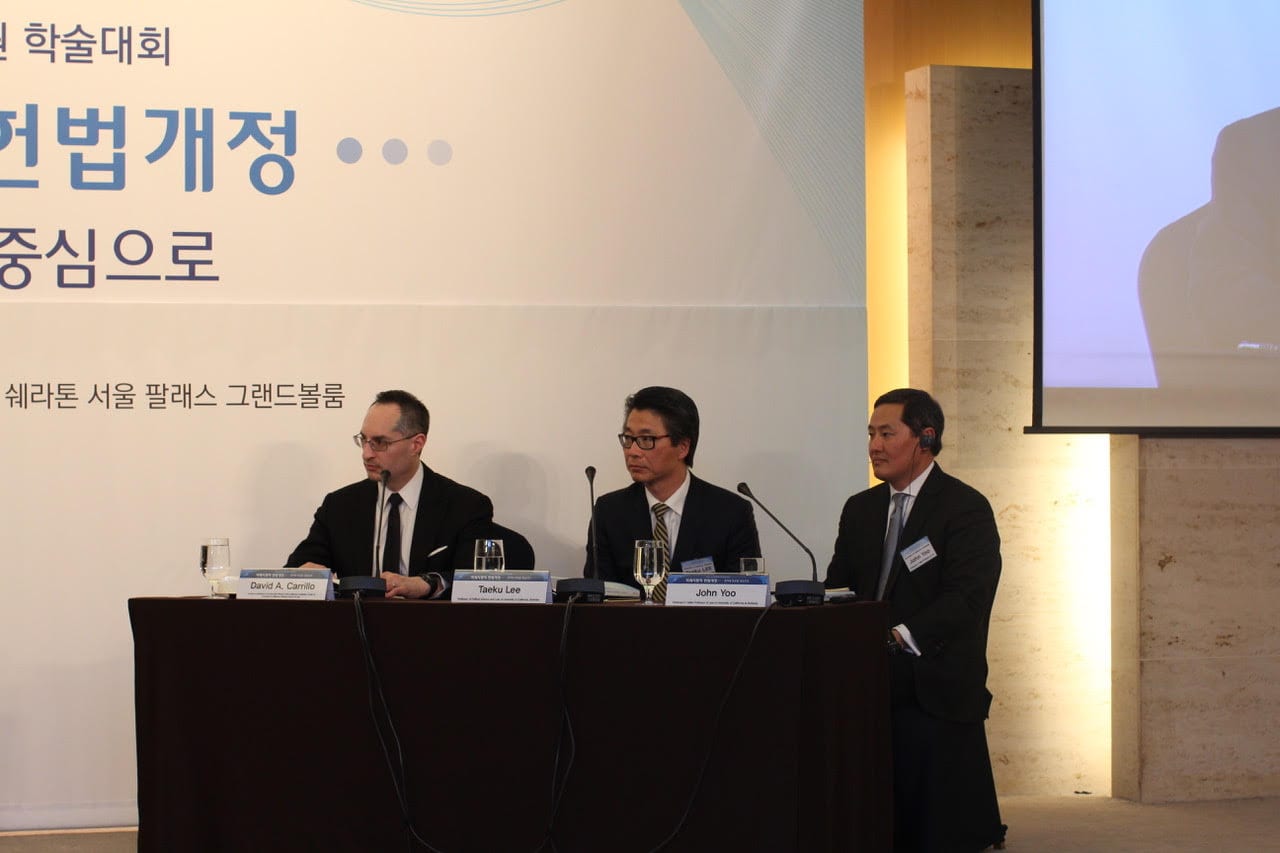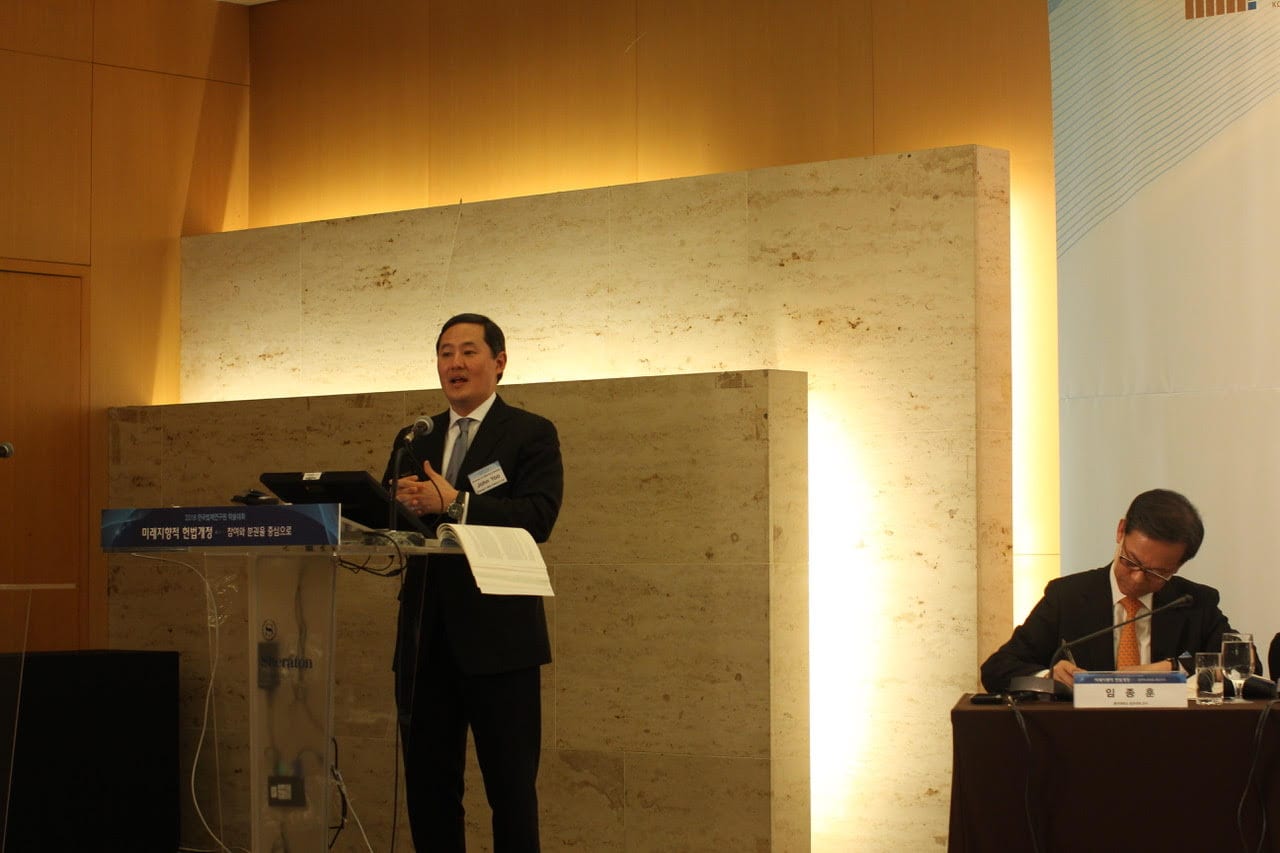
Berkeley Faculty Present at the 2018 Korean Legal Research Institute (한국법제연구원) Conference on the Korean Constitutional Amendment (February 2, 2018)
A delegation of Berkeley Law faculty was recently invited to South Korea to present at the Korean Legal Research Institute (KLRI) Conference on Constitutional Amendment and offer insights gleaned from the US Constitutional amendment process. On February 2, 2018, Professors Daniel Farber, Taeku Lee, John Yoo, and David Carrillo met with Korean legal scholars and experts to share ideas and foster discussion given recent talks of a possible South Korea Constitutional amendment in the near future. South Korea has amended its Constitution nine times in the past. The last amendment occurred in 1988, marking the beginning of the Sixth Republic of Korea, and providing for a return to direct elections for the President.
Keynote Speaker – Professor Daniel Farber
The Amendment Process
This talk discussed standards for evaluating the process for passing constitutional amendments. There are tradeoffs involved in designing an amendment process, and the best solution depends on the situation in each country. An amendment process can be assessed along several dimensions.
These dimensions involve values that are in tension with each other, so an amendment process must strike a balance. One tradeoff is between stability and flexibility. A difficult process increases stability. But easy amendment helps adjust to changing circumstances. Another tradeoff is between majority control of the amendment process and protection of minorities. Rights need protection even if they’re unpopular. But if a constitution gets too far from public opinion, it loses popular support. Finally, there is the tradeoff between participation and deliberation in the amendment process. To keep popular support, we also want broad public involvement. But this could hurt deliberation. Assessing the U.S. Constitutional along these lines, the talk concluded that the U.S. amendment process gives stability and little flexibility, empowers geographic minorities but not other minorities, and frustrates majority views; does not allow direct public impact, but allows a great deal of deliberation.

Taeku Lee
Rightful Design and the Residuals of Constitutional Democracy
Professor Taeku Lee presented on the elements of rightful constitutional design and the residuals of constitutional democracy, specifically in the U.S. case. He commented on the triumphs of and challenges to responsiveness, the relationship between protests and “Constitutional crisis,” public’s confidence in the U.S. government, anti-democratic sentiments, party polarization, and the relationship between partisanship and factionalism in the American Republic today. Professor Lee concluded that rightful design of constitutional democracy requires responsiveness, accountability, vigilance viz. democratic publics and their disaffections, and that rightful design also requires responsible political institutions that respect and reinforce democratic norms, rights, and rules. Professor Lee argued that the US case may appear like a secure social contract, but that may just be because revision is so difficult.

David Carrillo
Lessons from California’s experience with popular constitutional change
Professor David Carrillo presented on the history of California’s direct democracy since 1911, when the California electorate amended the state constitution in 1911 to reserve to itself the powers of initiative, referendum, and recall. He overviewed California’s direct democracy provisions and explained how many times the California constitution has been amended. He discussed the substantive constitutional issues the electorate’s direct democracy powers can raise and its practical effects in California. Despite the concerns of impairing elected representative efficiency and minority interests, he argued that direct democracy can be beneficial as it acts as a check on the institutional branches of government, encourages citizen participation in policy making, and permits the government to be more responsive to the electorate’s demands. He concluded that direct democracy in California is a net social good.

John Yoo
Influence of States in U.S. Constitutional Amendment Process
Professor John Yoo presented on the influence of the states in the US Constitutional amendment process. A Constitutional amendment in the United States requires not only 2/3 approval by both houses of Congress but ratification by 3/4 of the states. In contrast, an amendment to the South Korea Constitution only requires 2/3 approval by the unicameral National Assembly and a simple majority in a national referendum. Professor Yoo argued that states have played an indispensable role as a mediating institution that serves as a check on majoritarianism in the US amendment process. Furthermore, Professor Yoo discussed why the Framers of the US Constitution might have chosen to include the states to raise the barriers to constitutional amendment and make the US Constitution so difficult to amend.